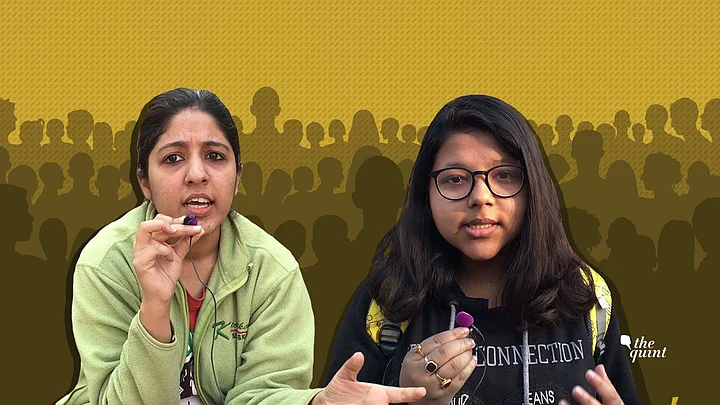The two-year-old controversy that erupted at Delhi's prestigious Jawaharlal Nehru University (JNU) over an event in which "anti-national" slogans were allegedly raised seems to have left an indelible tag for the institution and its students. While there doesn’t seem to be much progress in the sedition case that was registered against Kanhaiya Kumar, Umar Khalid, Anirban Bhattacharya and others, the university's students continue to grapple with the stereotype of being 'anti-national'.
The event, which was held on 9 February 2016 to mark the death anniversary of Parliament attack convict Afzal Guru, prompted a debate on nationalism and free speech across the country.
Today, a palpable discontent continues to linger among many students of the university - an urge to refute the stereotypes, coupled with anger that it is deflecting attention from "real" issues concerning the university.
‘We’re Not Anti-Nationals!’
Chandni, a PhD student who has been associated with JNU for eight years, observes that there is a general sense of disdain among the people outside towards the university's students.
This disdain is not articulated in any concrete way. Today, when one says that they’re from JNU, the response we often get is, ‘Arrey, wahan toh bahut hungama hota hai’. But there’s no substance to it.Chandni, JNU student
The stereotype surrounding JNU is perpetuated not just by social media, but also by some public figures. Recently, an RSS leader, Manmohan Vaidya, called JNU a symbol of "un-Indianness", while referring to Banaras Hindu University (BHU) as a symbol of "Indianness".
It is such characterisation that Arundhati Ghosh, another student at the university, seeks to reject.
Studying in JNU doesn’t literally mean that you’re against the nation. One can be against some ideologies, but that doesn’t mean one is against the nation. If you want to see what JNU is, you should come around here and see it for yourself.Arundhati Ghosh, JNU student
Another student reiterates this by pointing out how the discourse created by JNU is in fact oriented towards the betterment of Indian society - its poor, oppressed classes and castes. "How can this be anti-national?" she asks.
Some students also feel that the negative all-encompassing characterisation is due to what they call a ‘media trial’, which took place after the 9 February incident.
"It was just one event held by 7-8 radical people, but the negative opinion was attached to all the 7,000 students because of a media trial. The public should understand this and the negative perception should be reversed," one student says on the condition of anonymity.
'Politics Around the Incident Has Led to Neglect of Administrative & Infrastructural Issues'
Chandni asserts that since the 9 February incident, many of the administrative and infrastructural issues of the university that impact the students negatively have faced neglect from both the general public as well as the mainstream media.
Since the 9 February incident, JNU has been branded as ‘anti-national’. So now, nobody on the outside cares when something happens with the students. There was a massive seat-cut here. And that did not seem to become national news. Is that (the seat-cut) not anti-national? Instead of addressing those issues, everything that was fantastic about this place is being attacked.
The lack of attention given to the infrastructure in the university seems to be a common grouse of the students. Another student, while pointing out how the infrastructure is languishing in the campus, asserts that the administration’s concern only seems to be with political issues and crushing activism.
For a student like Chandni - who has been associated with the university for the past eight years - the difference in the way JNU has been perceived in the last two years is all too apparent.
I remember there was a time when people would ask about this place with a certain amount of interest and even recognition. That has really changed. Now, people just have a blind response.Chandni
(At The Quint, we question everything. Play an active role in shaping our journalism by becoming a member today.)
